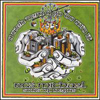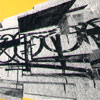- Administrator
- Albums and Singles
 The first ten minutes of this are not like any typical reggae recordingI've ever heard. Entitled "Rastaman Chant," the first track is a seriesof religous messages and what might be mistaken for exotic African ormiddle-eastern instruments. This style, based on traditional Jamaicandrumming, is quite entrancing and provides for a mesmerizing firsttrack. Unfortunatly, after "Rastaman Chant," nothing quite compares.Many of the songs have what sound like cheap Casio keyboards backing uprather lackluster lyrics and making for a generally cheap feeling allaround. When Ras Michael decides to move into more familiar reggaeterritory, he brings along bits and pieces of the nyabinghi style aswell as some jazzy horn parts and more passionate lyrics. He alsobrings, unfortunatly, numerous remixes that are completely pointlessand that either vary in no way from the original or sound less inspiredthan the original mix. With these remixes taken off of the album, agood twenty minutes is removed that makes the album shorter and thusmore enjoyable and easy to swallow. There are some good songs here, butafter a while it all begins to sound the same and, to be sure, thereare plenty of songs that are based off the same old reggae rhythm withlittle additions here and there. The solo horn parts on some of thesongs are a great addition and add a whole new element to reggae musicmaking it both mysterious and daring. It's just a same that so muchhere seems as if it were recorded with little belief in the power ofthe music being written. Also, the tracklisting seems to be totallyoff: it lists sixtreen tracks when I only count thirteen. The onlyexplanation is that the first three tracks are actually all one songunder the title of "Rastaman Chant." Ras Michael obviously has a ton oftalent and knows how to write decent music, so why he decided tosurround some strong material with a lot of wishy-washy, throw-awaytunes baffles me.
The first ten minutes of this are not like any typical reggae recordingI've ever heard. Entitled "Rastaman Chant," the first track is a seriesof religous messages and what might be mistaken for exotic African ormiddle-eastern instruments. This style, based on traditional Jamaicandrumming, is quite entrancing and provides for a mesmerizing firsttrack. Unfortunatly, after "Rastaman Chant," nothing quite compares.Many of the songs have what sound like cheap Casio keyboards backing uprather lackluster lyrics and making for a generally cheap feeling allaround. When Ras Michael decides to move into more familiar reggaeterritory, he brings along bits and pieces of the nyabinghi style aswell as some jazzy horn parts and more passionate lyrics. He alsobrings, unfortunatly, numerous remixes that are completely pointlessand that either vary in no way from the original or sound less inspiredthan the original mix. With these remixes taken off of the album, agood twenty minutes is removed that makes the album shorter and thusmore enjoyable and easy to swallow. There are some good songs here, butafter a while it all begins to sound the same and, to be sure, thereare plenty of songs that are based off the same old reggae rhythm withlittle additions here and there. The solo horn parts on some of thesongs are a great addition and add a whole new element to reggae musicmaking it both mysterious and daring. It's just a same that so muchhere seems as if it were recorded with little belief in the power ofthe music being written. Also, the tracklisting seems to be totallyoff: it lists sixtreen tracks when I only count thirteen. The onlyexplanation is that the first three tracks are actually all one songunder the title of "Rastaman Chant." Ras Michael obviously has a ton oftalent and knows how to write decent music, so why he decided tosurround some strong material with a lot of wishy-washy, throw-awaytunes baffles me.Read More
- Michael Patrick Brady
- Albums and Singles
 When I try and explain the more noisy selections in my albumcollection, it's at times difficult to explain what makes somethingmusical to you and how it is different from dropping a collection ofpots and pans down a concrete stairwell or jumping up and down on apiano using a hammer to strum a guitar. I'll admit it's often a fineline. The unfortunate result of this conversation is usually a cop outalong the lines of "I know it when I hear it," which, whileunsatisfying, is ultimately true. This is not a line of thought Ibelieved I would have to undertake when I slipped in this Butchy Fuegoalbum for the first time. The opening tracks consist of some gentlymelodic piano and horns that sounds like a good old time on the frontporch where the neighbors have brought their instruments for a hoedown.It's hokey, but mostly fun music and perfectly listenable. Thiscontinues over the course of several songs with titles like "AnotherDay at the Pizzeria" and "Hot Balls," until, for some reason, Mr. Fuegodecides to change things up a bit. Now, until this point, the music hadbeen doing rather well, and "Music For Sarah's Film" blendedinteresting static breaks with carnival style calliope and sounds.After this, forget it. First off, he named the next track "Filler." Howinfuriating is that? And it's true, the tiny track consists of nothingmore than a few random bloops, a short guitar lick, and some mumblemoans into the microphone. It is filler, he obviously knew it wasfiller, and yet it must be released. "Bumbleplight" momentarily rescuesthings with a glitchy IDM style workout, light years from the openingmaterial and strangely out of place, but nonetheless interesting.Following this schizophrenic path, we're then treated to randomsections and snippets of songs contained within one track, ranging fromsynth-pop new wave to squealing, fuzzy bashing on the instruments."Bunny" features some sloppy beatboxing amidst the shards of music thatlie behind it. From the sound of the last several tracks, it soundslike this was an improvisational brainstorm session to come up withsong ideas and that they just got lazy and put this out instead ofdistilling the more interesting and better developed parts (and believeit or not, there are some). Halfway through "Bunny," a good song popsout of nowhere, much to the listener's surprise. There's undevelopedpotential in the slop of this bipolar, incomprehensible tangle, whichonly makes it more infuriating that those ideas are lost underneathjerky goofball stupidity. Even with those flashes of possibility, thefinal piece almost ensures a spin in the microwave for Butchy Fuego.The album closes with "Outro," a track that after five minutes ofsilence concludes with an all onomatopoeia rendering of what I believeis the consumption and digestion of food, eventually leading toexcretion and the sound of rushing water that I take to be flushingfollowed by a door closing. Now, this scenario is not entirely clearfrom the track, merely my impression of what is going on. Mostlybecause the album itself seems perfectly evocative of somethinggenerally pleasing and unassuming disintegrating into self indulgenceand crap.
When I try and explain the more noisy selections in my albumcollection, it's at times difficult to explain what makes somethingmusical to you and how it is different from dropping a collection ofpots and pans down a concrete stairwell or jumping up and down on apiano using a hammer to strum a guitar. I'll admit it's often a fineline. The unfortunate result of this conversation is usually a cop outalong the lines of "I know it when I hear it," which, whileunsatisfying, is ultimately true. This is not a line of thought Ibelieved I would have to undertake when I slipped in this Butchy Fuegoalbum for the first time. The opening tracks consist of some gentlymelodic piano and horns that sounds like a good old time on the frontporch where the neighbors have brought their instruments for a hoedown.It's hokey, but mostly fun music and perfectly listenable. Thiscontinues over the course of several songs with titles like "AnotherDay at the Pizzeria" and "Hot Balls," until, for some reason, Mr. Fuegodecides to change things up a bit. Now, until this point, the music hadbeen doing rather well, and "Music For Sarah's Film" blendedinteresting static breaks with carnival style calliope and sounds.After this, forget it. First off, he named the next track "Filler." Howinfuriating is that? And it's true, the tiny track consists of nothingmore than a few random bloops, a short guitar lick, and some mumblemoans into the microphone. It is filler, he obviously knew it wasfiller, and yet it must be released. "Bumbleplight" momentarily rescuesthings with a glitchy IDM style workout, light years from the openingmaterial and strangely out of place, but nonetheless interesting.Following this schizophrenic path, we're then treated to randomsections and snippets of songs contained within one track, ranging fromsynth-pop new wave to squealing, fuzzy bashing on the instruments."Bunny" features some sloppy beatboxing amidst the shards of music thatlie behind it. From the sound of the last several tracks, it soundslike this was an improvisational brainstorm session to come up withsong ideas and that they just got lazy and put this out instead ofdistilling the more interesting and better developed parts (and believeit or not, there are some). Halfway through "Bunny," a good song popsout of nowhere, much to the listener's surprise. There's undevelopedpotential in the slop of this bipolar, incomprehensible tangle, whichonly makes it more infuriating that those ideas are lost underneathjerky goofball stupidity. Even with those flashes of possibility, thefinal piece almost ensures a spin in the microwave for Butchy Fuego.The album closes with "Outro," a track that after five minutes ofsilence concludes with an all onomatopoeia rendering of what I believeis the consumption and digestion of food, eventually leading toexcretion and the sound of rushing water that I take to be flushingfollowed by a door closing. Now, this scenario is not entirely clearfrom the track, merely my impression of what is going on. Mostlybecause the album itself seems perfectly evocative of somethinggenerally pleasing and unassuming disintegrating into self indulgenceand crap.Read More
- Taylor McLaren
- Albums and Singles
 Okay, so musicals aren't exactly standard Brain fare. I'm willing tobet, however, that enough of you read and enjoyed the (LIMPID!)scribblings of H.P. Lovecraft as kids that the idea of nailing hisplots and characters down on top of the (NON-EUCLIDEAN!) music from Fiddler on the Roofwill probably appeal to... well, at least one or two of you, anyway.What you get on this set of CD-Rs is pretty much what Lovecraft fanswill expect: a very, very silly (RUGOSE!) musical about the goings-onin Arkham, Mass., as the Armitage family tries to marry off its eldestdaughter to the Whateleys, and Great Cthulhu returns to destroyeverybody. There's also some (SANITY-BLASTING!) silliness involvingparanormal investigators poking around the town graveyard and HerbertWest re-animating dead things in the background, and none of it willmake any sense whatsoever if you haven't read any Lovecraft, but...well, dammit, it's funny, and the convoluted (OTIOSE!) "history" of theplay (detailed on the Society's web site and on the VCD documentarythat's available with the music if you want it) is presented in thesame quasi-plausible format that makes HPL's writing so enduring.Music-wise, there's nothing gibber-inducing going on here: it soundspretty much exactly like a budget recording of Fiddler (IA! THEBLACK GOAT IN THE WOOD WITH A THOUSAND SPAWN!), with competent singersand music cranked out on a single cheap keyboard. Really seriousexperimental-music fans will roll their eyes at the notion of spendingup to $25 on this nonsense, but I've bought more stupid novelty recordsin my life and enjoyed them a lot less. For those curious, a bunch ofother MP3 samples are available from the Society's site along with alink to a downloadable version of the "documentary" on the play.
Okay, so musicals aren't exactly standard Brain fare. I'm willing tobet, however, that enough of you read and enjoyed the (LIMPID!)scribblings of H.P. Lovecraft as kids that the idea of nailing hisplots and characters down on top of the (NON-EUCLIDEAN!) music from Fiddler on the Roofwill probably appeal to... well, at least one or two of you, anyway.What you get on this set of CD-Rs is pretty much what Lovecraft fanswill expect: a very, very silly (RUGOSE!) musical about the goings-onin Arkham, Mass., as the Armitage family tries to marry off its eldestdaughter to the Whateleys, and Great Cthulhu returns to destroyeverybody. There's also some (SANITY-BLASTING!) silliness involvingparanormal investigators poking around the town graveyard and HerbertWest re-animating dead things in the background, and none of it willmake any sense whatsoever if you haven't read any Lovecraft, but...well, dammit, it's funny, and the convoluted (OTIOSE!) "history" of theplay (detailed on the Society's web site and on the VCD documentarythat's available with the music if you want it) is presented in thesame quasi-plausible format that makes HPL's writing so enduring.Music-wise, there's nothing gibber-inducing going on here: it soundspretty much exactly like a budget recording of Fiddler (IA! THEBLACK GOAT IN THE WOOD WITH A THOUSAND SPAWN!), with competent singersand music cranked out on a single cheap keyboard. Really seriousexperimental-music fans will roll their eyes at the notion of spendingup to $25 on this nonsense, but I've bought more stupid novelty recordsin my life and enjoyed them a lot less. For those curious, a bunch ofother MP3 samples are available from the Society's site along with alink to a downloadable version of the "documentary" on the play. Read More
- Administrator
- Albums and Singles
 While many bands try to find the sound of the future, or use the sounds of the past to create new foundations for the music of today, the enigmatic B'eirth of In Gowan Ring is perfectly happy being firmly rooted in the past. Not the recent past, either, as a passing listen to any of his previous records would find tunes almost medieval in nature.BlueSanct
While many bands try to find the sound of the future, or use the sounds of the past to create new foundations for the music of today, the enigmatic B'eirth of In Gowan Ring is perfectly happy being firmly rooted in the past. Not the recent past, either, as a passing listen to any of his previous records would find tunes almost medieval in nature.BlueSanct
No percussion is necessary, either, as B'eirth uses his own affected voice, guitar and harp to create this minstrel's art, with occasional guest musicians contributing on a variety of instruments. B'eirth also has a love for odd wind and string instruments, like the sackbut and the cittern respectively, that he and his guest musicians use fondly when others forgot them an age ago. Overall, the songs have a somber feel, as though the innkeeper let the lyre player have a little too much mead, and now the whole room is treated to his many laments on nature and love. Suddenly, it's "Ladies and Gentlemen We Are Floating in Renaissance Fair," with every song reflecting the plaintive longing of a poet's heart. While this may be a lush and beautiful locale, it is not one where everyone can find a place to belong or enjoy staying for a while. B'eirth has crafted his finest collection of songs, with delicately plucked notes and fluid strings sweeping in and out. However, to call it a pleasurable listen would be to belie the heavy tone of the record. These are not just songs about a bonny lass, but yet about the ethereal and existential, with words like "the world becomes a muscle" and "In thrall of weather's wit ally the languished lips." The album is beautifully written, played, and recorded, but the casual listener will have none of it. Hazel Steps is an album for people of another time, just as the conductor B'eirth plays a middle earth Brian Wilson, not born for the time in which he exists. Some may find some touching music of immense meaning here, but for me it fell flat, and I could not bear to listen to it all the way through. Not as torturous as Sir Robin's minstrels, but still not a music dear to my ears and heart. B'eirth, however, is showing a masterful command of this style of music, and many at the tavern would yet swoon to hear his voice. Just don't count me among the mainstays at the bar.
Read More
- Administrator
- Albums and Singles
 With a palette of dense electronic tones, bass and distorted guitars,Growing announce their presence to the world. Theirs is a mostlywhispered voice, humming with the full and haunting melody ofunderwater computer and keyboard noise, but occasionally parting waysfor the traditional rock instrument. The different philosophies rollaround like lazy children in the summertime shade, allowing differenttunes to escape their lips and merge together in the hope that theywill create a solid and beautiful harmony. For the most part, thesesongs do capture that magic, where the electronic and the electricunite and escape their various confines for the greater good of thewhole composition. In places, unfortunately, it all sounds too static,too much of the same lukewarm ocean sound where some variation mighthelp, and continuing on a bit longer than absolutely necessary.Occasionally, there is a jarring change for the unprepared ears, likethe guitar dissonance of "Cutting, Opening, Swimming" that threatens togently coax the walls down all around you. These moments are too few,though, and it feels like the band is still finding their sound, stilllearning where their stops are and how to exploit them to their fullestextent. For a debut it shows real promise for the band, however. Thesongs, appropriate for the name of the band, do grow on you, moving into the house and sleeping on the couch until you finally decide thatthey're a fitting addition to the decor. The last track on the album,"Pavement Rich in Gold" was on repeat on my CD player one night for agood three hours, as it perfectly set the mood for a time of totalrelaxation, and the simple progression was enough to set me almostimmediately at ease. Not necessarily the feel good record of thesummer, and not a brilliant debut, but certainly the right record for acool-down on a hot summer night.
With a palette of dense electronic tones, bass and distorted guitars,Growing announce their presence to the world. Theirs is a mostlywhispered voice, humming with the full and haunting melody ofunderwater computer and keyboard noise, but occasionally parting waysfor the traditional rock instrument. The different philosophies rollaround like lazy children in the summertime shade, allowing differenttunes to escape their lips and merge together in the hope that theywill create a solid and beautiful harmony. For the most part, thesesongs do capture that magic, where the electronic and the electricunite and escape their various confines for the greater good of thewhole composition. In places, unfortunately, it all sounds too static,too much of the same lukewarm ocean sound where some variation mighthelp, and continuing on a bit longer than absolutely necessary.Occasionally, there is a jarring change for the unprepared ears, likethe guitar dissonance of "Cutting, Opening, Swimming" that threatens togently coax the walls down all around you. These moments are too few,though, and it feels like the band is still finding their sound, stilllearning where their stops are and how to exploit them to their fullestextent. For a debut it shows real promise for the band, however. Thesongs, appropriate for the name of the band, do grow on you, moving into the house and sleeping on the couch until you finally decide thatthey're a fitting addition to the decor. The last track on the album,"Pavement Rich in Gold" was on repeat on my CD player one night for agood three hours, as it perfectly set the mood for a time of totalrelaxation, and the simple progression was enough to set me almostimmediately at ease. Not necessarily the feel good record of thesummer, and not a brilliant debut, but certainly the right record for acool-down on a hot summer night.Read More
- Administrator
- Albums and Singles
 I am somewhat ashamed to admit I have been struck with a feeling ofnostalgia for something that I never quite experienced before with therelease of this collection. What's even worse is the sticker on thefront cover advertises as song as featured in a Dentyne Ice commercial.Regardgless, I'm pretty certain that there was a time in the 1990s thatcommercial alternative radio was occasionally adventurous and sometimessupported a local group who had a great song. The two most notablestations here in the USA were probably NY's WDRE and LA's KROQ.Boston's WFNX wasn't far behind, and here in Boston, we had our shareof local hits that never quite made much of a difference outside of theBay State, no matter how hard Kay Hanley tried. Papas Fritas wasn't aband who I felt much affinity for, but whenever "Lame to Be" or "HeyHey You Say" came on the radio I soaked it in. I wasn't terriblyimpressed with pop songs back in the mid-1990s, and Papas Fritas wereclearly obsessed with Beach Boys, Fleetwood Mac and the Replacements.To their credit, they made the most impressive dense pop records theycould with the budget they had. Often recording on their own 8-trackrecorder, the core trio of Tim Goddess (guitar), Keith Gendel (bass),and Shivika Asthana (drums) each shared vocal duties, often singingtogether like a 1970s Hanna-Barbara cartoon band. Despite theirconfined conditions, the group were joined by string players, horns,and percussionists and achieved some sparkling clear results. Yetthere's a reason why these songs rarely stretch much longer than threeminutes: they've given away all the songs' secrets within the firstminute. It's the beauty of simple pop and what attracts so many peopleto the bloody Beach Boys. They didn't cloud their music with effectsand distortion, nor did they ever wander from the verse-chorus-versestructure, but listening now, there isn't a dull moment and everythingseems honestly direct. Named after their self-publishing company (and aplay on their name) this collects 17 musical tracks on one disc andthree music videos on a DVD. Most of the tracks are from bonus cuts offinternational releases, compilation tracks, and singles, but eight oftheir biggest radio album cuts from their three records also appear tomake it more of a hits package as well. It's nice for people like mewho would have honestly probably let their full-length records collectdust as well as fans who wanted fully digital versions of songs thatwere only available on cheaply made flimsy 7" records or expensiveimports. The video DVD is entertaining to watch, and the band's justtoo cute in "Hey Hey You Say" not to fall in love with them. It's aperfect visual accompaniment and I strongly encourage all labels tostart doing this. If there's anything the rest of the industry canlearn from this is that including multimedia extras as a bonus (ie: notmaking so many separate DVD releases, but tossing in a second disc likethey should) can only be a good thing.
I am somewhat ashamed to admit I have been struck with a feeling ofnostalgia for something that I never quite experienced before with therelease of this collection. What's even worse is the sticker on thefront cover advertises as song as featured in a Dentyne Ice commercial.Regardgless, I'm pretty certain that there was a time in the 1990s thatcommercial alternative radio was occasionally adventurous and sometimessupported a local group who had a great song. The two most notablestations here in the USA were probably NY's WDRE and LA's KROQ.Boston's WFNX wasn't far behind, and here in Boston, we had our shareof local hits that never quite made much of a difference outside of theBay State, no matter how hard Kay Hanley tried. Papas Fritas wasn't aband who I felt much affinity for, but whenever "Lame to Be" or "HeyHey You Say" came on the radio I soaked it in. I wasn't terriblyimpressed with pop songs back in the mid-1990s, and Papas Fritas wereclearly obsessed with Beach Boys, Fleetwood Mac and the Replacements.To their credit, they made the most impressive dense pop records theycould with the budget they had. Often recording on their own 8-trackrecorder, the core trio of Tim Goddess (guitar), Keith Gendel (bass),and Shivika Asthana (drums) each shared vocal duties, often singingtogether like a 1970s Hanna-Barbara cartoon band. Despite theirconfined conditions, the group were joined by string players, horns,and percussionists and achieved some sparkling clear results. Yetthere's a reason why these songs rarely stretch much longer than threeminutes: they've given away all the songs' secrets within the firstminute. It's the beauty of simple pop and what attracts so many peopleto the bloody Beach Boys. They didn't cloud their music with effectsand distortion, nor did they ever wander from the verse-chorus-versestructure, but listening now, there isn't a dull moment and everythingseems honestly direct. Named after their self-publishing company (and aplay on their name) this collects 17 musical tracks on one disc andthree music videos on a DVD. Most of the tracks are from bonus cuts offinternational releases, compilation tracks, and singles, but eight oftheir biggest radio album cuts from their three records also appear tomake it more of a hits package as well. It's nice for people like mewho would have honestly probably let their full-length records collectdust as well as fans who wanted fully digital versions of songs thatwere only available on cheaply made flimsy 7" records or expensiveimports. The video DVD is entertaining to watch, and the band's justtoo cute in "Hey Hey You Say" not to fall in love with them. It's aperfect visual accompaniment and I strongly encourage all labels tostart doing this. If there's anything the rest of the industry canlearn from this is that including multimedia extras as a bonus (ie: notmaking so many separate DVD releases, but tossing in a second disc likethey should) can only be a good thing.Read More
- Administrator
- Albums and Singles
 There's something about the current direction of independent hip hopthat makes it more interesting to listen to than most major labelstuff. The freedom to mix and match elements of other types ofunexpected music genres makes for great listening. Backing trackcompositions and production stand out on their own and can be just asinteresting as, if not more than, the MC's sharp rhymes and skillfuldelivery. Halifax-based Vaughn Robert Squire (aka Sixtoo) is a triplethreat as he handles the roles of DJ, MC and producer with equalprecision. Having contributed to collectives such as Anticon and theVinyl Monkeys, as well collaborating with fellow east coast Canadianhip hop artist Buck 65 for the Sebutones, Sixtoo is equally comfortablein each of those roles and the proof is apparent throughout Antagonist Survival Kit'sten tracks. The cool, relaxed groove of "A to Zero" is woven with tightrhymes and scratches, distant melodica lines and warm acoustic guitarpicking. An upper register bass guitar motif repeats on "Fear ofFlying" to clipped machine beats and pulsing synth drones beneathpolyrhythmic lines and rhymes. "Outremont Mainline Runs Across theSunset" brings sparse vibraphone to the mix of laid back, boomy drumloops and great lines such as "Love doesn't tear us apart/You see, it'sthe little things" and "When we start looking in mirrors forcharity/It's embarrassing." The impressive twenty minute instrumental"The Mile-End Artbike/Suicide Manual" moves through separate sectionsthat have the common thread of electronic/hip hop meets musiqueconcr?e, using other elements such as electric guitar, Rhodes piano andassorted percussion. Some of the disc's tracking is mixed with one andtwo minute interludes that could be seen as teasers as they stand outimmediately, only to subside and lead in the next great track. Sixtoohas been described as being an important catalyst for hip hop'sevolution and advancement. A few listens to Antagonist Survival Kit give weight to those words.
There's something about the current direction of independent hip hopthat makes it more interesting to listen to than most major labelstuff. The freedom to mix and match elements of other types ofunexpected music genres makes for great listening. Backing trackcompositions and production stand out on their own and can be just asinteresting as, if not more than, the MC's sharp rhymes and skillfuldelivery. Halifax-based Vaughn Robert Squire (aka Sixtoo) is a triplethreat as he handles the roles of DJ, MC and producer with equalprecision. Having contributed to collectives such as Anticon and theVinyl Monkeys, as well collaborating with fellow east coast Canadianhip hop artist Buck 65 for the Sebutones, Sixtoo is equally comfortablein each of those roles and the proof is apparent throughout Antagonist Survival Kit'sten tracks. The cool, relaxed groove of "A to Zero" is woven with tightrhymes and scratches, distant melodica lines and warm acoustic guitarpicking. An upper register bass guitar motif repeats on "Fear ofFlying" to clipped machine beats and pulsing synth drones beneathpolyrhythmic lines and rhymes. "Outremont Mainline Runs Across theSunset" brings sparse vibraphone to the mix of laid back, boomy drumloops and great lines such as "Love doesn't tear us apart/You see, it'sthe little things" and "When we start looking in mirrors forcharity/It's embarrassing." The impressive twenty minute instrumental"The Mile-End Artbike/Suicide Manual" moves through separate sectionsthat have the common thread of electronic/hip hop meets musiqueconcr?e, using other elements such as electric guitar, Rhodes piano andassorted percussion. Some of the disc's tracking is mixed with one andtwo minute interludes that could be seen as teasers as they stand outimmediately, only to subside and lead in the next great track. Sixtoohas been described as being an important catalyst for hip hop'sevolution and advancement. A few listens to Antagonist Survival Kit give weight to those words. Read More
- Administrator
- Albums and Singles
 There are three kinds of human, as you call them. There are the poordoomed huddled masses who are yet to hear Fennesz, cowering inignorance of the F-able; there are the enlightened who recognise him asa gloriously original experimental musician orbiting spheres way beyondmere progression; then there are total morons who probably waste theirtime listening to Britpap for lack of any clue whatsoever. The Austrianentity who has totally defined and redefined the interface betweenovergrown hedge cutting laptop mutation and pick'n'strum guitar beautyplayed for around forty-six minutes in Japan in the second month ofthis year. As the summer hit too hot to move, this CD fell into mylucky ol' player on the fifteenth and shimmered with utter perfection.If you didn't dig Endless Summeryou are not worth a flick of my fag ash, and I don't even smoke.Chrissy F as his friends almost certainly never call him (I mean haveyou seen the guy? He looks so serious no one could call him Chrissy F,except maybe that utterly punchable dillweed who tries to sing forBlur) would doubtless not approve of such an irrelevant sentance withparentheses appearing in what is after all supposed to be some kind ofdescription of his latest triumph. Hip Nips (the Jap chaps who clapquiet) hailed the master of cracklepops as the finest laptop performerthey had witnessed. Reviewed, it seemed that this was the inevitablehype of the press release, but the disc is ample amplified evidencethat this was one sweet shimmer burn of a unique event. Familiarfragments and refrains from Endless Summer are repositionedamongst ever more sundrenched light too bright. Fennesz has shifted hiswhole unmistakable shtick up a gear here, and made the magnificent Endless Summerseem like a mere rehearsal. If you are one of the enlightened then youknow you need this. If you want to elevate beyond the bilge this is thedisc to pick, yellow obi 'n' all. Bob Geldof has not been hailing thisas the greatest thing he's heard since the Pistols, and Fennesz hasnever tried to feed the world. How can you tell them it's Xmas timewhen the summer is endless?
There are three kinds of human, as you call them. There are the poordoomed huddled masses who are yet to hear Fennesz, cowering inignorance of the F-able; there are the enlightened who recognise him asa gloriously original experimental musician orbiting spheres way beyondmere progression; then there are total morons who probably waste theirtime listening to Britpap for lack of any clue whatsoever. The Austrianentity who has totally defined and redefined the interface betweenovergrown hedge cutting laptop mutation and pick'n'strum guitar beautyplayed for around forty-six minutes in Japan in the second month ofthis year. As the summer hit too hot to move, this CD fell into mylucky ol' player on the fifteenth and shimmered with utter perfection.If you didn't dig Endless Summeryou are not worth a flick of my fag ash, and I don't even smoke.Chrissy F as his friends almost certainly never call him (I mean haveyou seen the guy? He looks so serious no one could call him Chrissy F,except maybe that utterly punchable dillweed who tries to sing forBlur) would doubtless not approve of such an irrelevant sentance withparentheses appearing in what is after all supposed to be some kind ofdescription of his latest triumph. Hip Nips (the Jap chaps who clapquiet) hailed the master of cracklepops as the finest laptop performerthey had witnessed. Reviewed, it seemed that this was the inevitablehype of the press release, but the disc is ample amplified evidencethat this was one sweet shimmer burn of a unique event. Familiarfragments and refrains from Endless Summer are repositionedamongst ever more sundrenched light too bright. Fennesz has shifted hiswhole unmistakable shtick up a gear here, and made the magnificent Endless Summerseem like a mere rehearsal. If you are one of the enlightened then youknow you need this. If you want to elevate beyond the bilge this is thedisc to pick, yellow obi 'n' all. Bob Geldof has not been hailing thisas the greatest thing he's heard since the Pistols, and Fennesz hasnever tried to feed the world. How can you tell them it's Xmas timewhen the summer is endless? Read More
- Michael Patrick Brady
- Albums and Singles
 For me, the best music is the kind that digs its way underneath your skin, and momentarily seizes control, allowing every note to hit you at a deep, physical level that affects your body, increases your heart rate, and opens your eyes to the easily missed facets of its design. On their latest self-titled release, Gardenbox reveals a keen understanding of this concept. The music touches on calm excursions of thought as well as massive experimentations of melody, drone, and energy that boil your blood and viscera.Poeta Negra
For me, the best music is the kind that digs its way underneath your skin, and momentarily seizes control, allowing every note to hit you at a deep, physical level that affects your body, increases your heart rate, and opens your eyes to the easily missed facets of its design. On their latest self-titled release, Gardenbox reveals a keen understanding of this concept. The music touches on calm excursions of thought as well as massive experimentations of melody, drone, and energy that boil your blood and viscera.Poeta Negra
"Gravity" is incindeary, augmenting a simple piano melody with layers of glitch bleeps and heavy programmed beats. This layering finds each portion colliding with another to generate a frenetic, chaotic intensity which coasts along a forward moving beat, like speeding along the highway in a creaky, shaky car on the verge of falling apart. The track conveys a dangerous, determined sense that emits energy and thrust in short pulse bursts. "Sick of Everything" emerges with a deluge of thin, staccato beats slicing little nicks with an array of quick cuts. They drill wickedly as a low crackle and fuzz begins to bleed out from between them, tone and melody infused with static coalescing formlessly. A guitar drone finds its way to the fore, giving color to the shifting, swirling atmosphere punctuated by what sounds like a pinball machine violently turned on its side. Gardenbox crafts an amazing miasma of both direct punches to the senses as well as more subtle, sensual and textural impacts that wash over and envelop rather than stab. "You Can't Hurt It" is a patient, subdued track and the first to feature vocals on the album. It is a fine song, the speak sing vocals blend well with the restrained accompaniment but its quiet mood fails to set off the same chemical chain reactions in the brain that the instrumental tracks utilized to make your pulse dizzily synch up to their rhythm. Short interludes rest between the more meaty songs, often clocking between half a minute and a minute and a half. These transitional pieces aid the flow of the album by creating a familiar bridge between long pieces, and offering interesting ideas of their own through fuzzed out oscillations and unintellegeable vocal offerings. It might have been fun to have seen "Yes, We're Alive, Shouldn't We?" or "Inexpensive Ways to Fly" given the extended treatment (rather than the economy sized) but in this form they still manage to leave a great impression in the fleeting glimpse we are treated to. Beginning with canned horns and mid tempo percussion, "The Grief of Sadness" implies that it is going to follow this standard instrumental route for its entire ten-minute duration. However, it isn't long before modulation and synthethizers pop out, injecting the track with new life. In the midst of all this, the brass tones creep up and crescendo through the cloud of production beeps and drones giving the track a powerfully anthemic aura. Gardenbox is an impressive psyche freak out that finds its base in dynamicism and experimentation, 
Read More
- Administrator
- Albums and Singles
 Mitchell Akiyama and Tony Boggs create wildly illustrative music bydestroying vocal and instrumental music that they record. Whatseperates this studio-foolery from other projects aimed at makingbeauty out of destroyed sounds is the way the chaos is controlled andshaped perfectly. D?ormais compose songs, plan their moves ahead oftime, and give their dying sounds life by stacking them together and ontop of each other in meaningful ways. It doesn't hurt that all thedrum, piano, string, and vocal parts were recorded by the group andthen disassembled and rearranged by the same people. Regardless of theprocess, the music is absolutely gorgeous. Bits and pieces of slideguitar, piano, and acoustic strumming cascade and flow as one stream ofmusic with each instrument sliding above and submerging beneath thesurface. Violins rattle, pop, hum, and echo throughout the backgroundcreating the illusion that this music must have been created in acathedral dedicated to dead and dying instruments and compositions longabandoned by their composers. The mass of sound is glowingly beautifuland never seems to repeat or ever hints at any patterns that it may bebased on. The creation of the music must've been a long and painfulprocess as no two songs sound alike and each features a variety ofinstrumentation used in various manners. "To Sing Before Going toSleep" is particularly good example of what can be done with awell-written song and an ear for space, silence, and timbres. It driftsso elegantly with mysterious female vocals nearly crying out from theslow flow of crystalline guitar picking and howling, unidentifiableinstruments. Each song sounds as if every second were random, but theresult is so perfect that I think it must've been planned that way. Iambroken...is a blueprint for what can be done with glitchy sounds and a bitcompositional patience. Of course defective sounds can be gorgeous, butthey're magnificent when composed and arranged in a way that feelsfamiliar. In all reality, however, it's truly alien.
Mitchell Akiyama and Tony Boggs create wildly illustrative music bydestroying vocal and instrumental music that they record. Whatseperates this studio-foolery from other projects aimed at makingbeauty out of destroyed sounds is the way the chaos is controlled andshaped perfectly. D?ormais compose songs, plan their moves ahead oftime, and give their dying sounds life by stacking them together and ontop of each other in meaningful ways. It doesn't hurt that all thedrum, piano, string, and vocal parts were recorded by the group andthen disassembled and rearranged by the same people. Regardless of theprocess, the music is absolutely gorgeous. Bits and pieces of slideguitar, piano, and acoustic strumming cascade and flow as one stream ofmusic with each instrument sliding above and submerging beneath thesurface. Violins rattle, pop, hum, and echo throughout the backgroundcreating the illusion that this music must have been created in acathedral dedicated to dead and dying instruments and compositions longabandoned by their composers. The mass of sound is glowingly beautifuland never seems to repeat or ever hints at any patterns that it may bebased on. The creation of the music must've been a long and painfulprocess as no two songs sound alike and each features a variety ofinstrumentation used in various manners. "To Sing Before Going toSleep" is particularly good example of what can be done with awell-written song and an ear for space, silence, and timbres. It driftsso elegantly with mysterious female vocals nearly crying out from theslow flow of crystalline guitar picking and howling, unidentifiableinstruments. Each song sounds as if every second were random, but theresult is so perfect that I think it must've been planned that way. Iambroken...is a blueprint for what can be done with glitchy sounds and a bitcompositional patience. Of course defective sounds can be gorgeous, butthey're magnificent when composed and arranged in a way that feelsfamiliar. In all reality, however, it's truly alien.Read More
- Administrator
- Albums and Singles
 "File under Electronic" says the promotional blurb. It seems thatSchematic are trying to sell this reissue of Velez 1985 release to theAutechre brigade. I can see the parallels but is trance-drumming whatthe electronica heads are after? Velez, a superb drummer and authorityon frame drums, their various traditional techniques and musicalstyles, draws on those references in five longish improvised piecesthat are ultimately not traditional music but his own. As with theelectronica, rhythmic framework is always apparent and layers ofcomplexity are added. But here every individual touch is a unique humangesture in real time as (opposed to programming and looping) and theresult is all the more exciting for it. Velez' control is amazing.While the tonic rhythms are never lost, their internal complexity isbuilt up and pushed to breaking point only to suddenly return home—theapparent instability was all an illusion with Velez in perfect controlthroughout. Since the rhythmic modes are quite clear it sounds morelike process music than improv and has the hypnotic character of goodminimalism. That and the overtone drone singing at a couple of pointsgives a hint of New-Ageism and World Music. In a certain sense, there'slittle difference between this and hippy drum circles. But practicallythe difference is enormous: Velez can really play, he devoted his lifeto mastery of these instruments, achieved that and it shows. Theexcitement of bravura virtuoso performance is the distinction. Velezcan create the illusion of as many as three drummers playing at once.This isn't to say that Velez is a flashy show-off—not at all, the musicis fairly muted with an aim at detail and nuance. The low dynamicsactually allow one to better hear the nature of the sound of thevarious drums he uses. At a surface level it may seem static butunderneath there enormous depth to the variation of both rhythm andsound. It can be quite the head-trip if you give it the opportunity,which I suppose is what Schematic hope all you Autechre fans will do.
"File under Electronic" says the promotional blurb. It seems thatSchematic are trying to sell this reissue of Velez 1985 release to theAutechre brigade. I can see the parallels but is trance-drumming whatthe electronica heads are after? Velez, a superb drummer and authorityon frame drums, their various traditional techniques and musicalstyles, draws on those references in five longish improvised piecesthat are ultimately not traditional music but his own. As with theelectronica, rhythmic framework is always apparent and layers ofcomplexity are added. But here every individual touch is a unique humangesture in real time as (opposed to programming and looping) and theresult is all the more exciting for it. Velez' control is amazing.While the tonic rhythms are never lost, their internal complexity isbuilt up and pushed to breaking point only to suddenly return home—theapparent instability was all an illusion with Velez in perfect controlthroughout. Since the rhythmic modes are quite clear it sounds morelike process music than improv and has the hypnotic character of goodminimalism. That and the overtone drone singing at a couple of pointsgives a hint of New-Ageism and World Music. In a certain sense, there'slittle difference between this and hippy drum circles. But practicallythe difference is enormous: Velez can really play, he devoted his lifeto mastery of these instruments, achieved that and it shows. Theexcitement of bravura virtuoso performance is the distinction. Velezcan create the illusion of as many as three drummers playing at once.This isn't to say that Velez is a flashy show-off—not at all, the musicis fairly muted with an aim at detail and nuance. The low dynamicsactually allow one to better hear the nature of the sound of thevarious drums he uses. At a surface level it may seem static butunderneath there enormous depth to the variation of both rhythm andsound. It can be quite the head-trip if you give it the opportunity,which I suppose is what Schematic hope all you Autechre fans will do. Read More